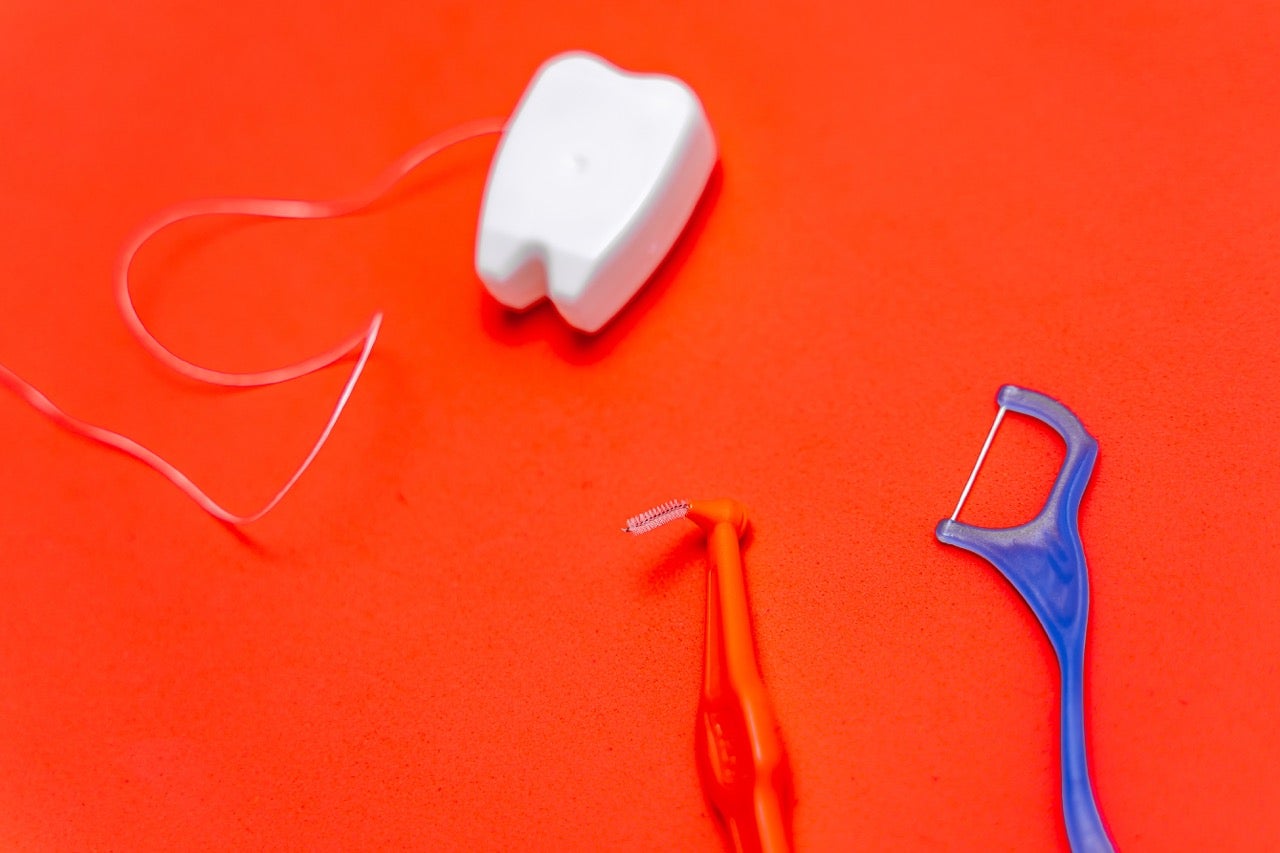We all know the mantra: Brush your teeth twice daily for a bright, healthy smile. But did you know that flossing teeth can be just as important? This toothbrush sidekick doesn’t get as much attention as it deserves—but it can be as important as your toothbrush in maintaining oral and overall health. Let’s explore the many ways flossing contributes to a healthier you.
Flossing Teeth: The Unsung Oral and Overall Health Hero
Flossing is the process of using a thin piece of string, known as dental floss, to remove plaque and food particles from between the teeth and along the gum line, areas that a toothbrush often can’t reach. Flossing plays a pivotal role in maintaining oral health and overall physical well-being.
When You Floss Teeth, How Does It Help Keep You Healthy?

- Flossing prevents gum disease.
The importance of flossing is that it helps remove plaque and food particles that brushing alone often misses, particularly in the tight spaces between your teeth. By regularly removing this buildup, you help reduce the risk of gum disease, which can lead to inflammation, swelling, and even tooth loss if left untreated.
- Flossing reduces the risk of heart disease.
Research has shown a potential link between gum disease and heart problems. The bacteria that cause gum infections can enter the bloodstream, forming arterial plaques and increasing the risk of cardiovascular diseases. Flossing helps remove the bacteria and reduce heart disease risk. It has also been shown to lower stroke risk.
- Flossing may lower diabetes risk.
There is evidence suggesting that oral health is connected with diabetes management. Poor dental health can hinder blood sugar control, and gum disease can contribute to insulin resistance. Flossing regularly can help maintain gum health, thereby providing support in managing and potentially lowering the risk of developing type 2 diabetes.
- Flossing helps prevent bad breath (Halitosis).
By reducing the buildup of bacteria and food particles through regular flossing, you help preserve a fresh mouth and reduce bad breath.
- Flossing enhances overall quality of life.
When your gums and teeth are healthier, it can lead to better eating habits, as discomfort from dental issues can lead to poor nutrition choices. Additionally, feeling confident about your smile and breath can enhance social interactions and mental well-being.
Bonus benefit from flossing: cost savings!
Preventive oral care—including flossing—could save thousands in dental treatment costs over a lifetime by preventing severe dental issues. Investing just a few minutes daily in flossing can lead to significant savings in dental expenses over time.
Get the Most Out of Flossing

How to floss your teeth:
There are various types of dental floss to choose from, including waxed, unwaxed, flavored, and tape. (Waxed tends to slide between teeth more easily.) You can also use floss-threaded picks.
When using floss:
- Cut about 18-24 inches of floss.
- Wrap the floss around your middle fingers, leaving a couple of inches to work with.
- Gently insert the floss between your teeth, using a gentle sawing motion to avoid damaging your gums.
- Curve the floss around each tooth in a C-shape, sliding it up and down the sides of each tooth and below the gum line.
- Unwind fresh floss as you move from tooth to tooth so that you always use a clean section.
Your dentist can always help you with your flossing technique.
How often to floss teeth:
Aim to floss at least once a day, preferably before bedtime, because plaque can build up overnight.
Questions About Flossing? Talk to Penn Dental Medicine
 You can make an appointment by calling 215-898-8965 or completing this form.
You can make an appointment by calling 215-898-8965 or completing this form.
Flossing teeth is an indispensable part of maintaining good oral health. By helping prevent tooth decay, combating gum disease, protecting your overall health, freshening your breath, and saving money, the benefits are clear. So, grab that floss and make it a daily habit. Your teeth, gums, and potentially even your heart will thank you!



 You can make an appointment by calling 215-898-8965 or completing this form.
You can make an appointment by calling 215-898-8965 or completing this form.